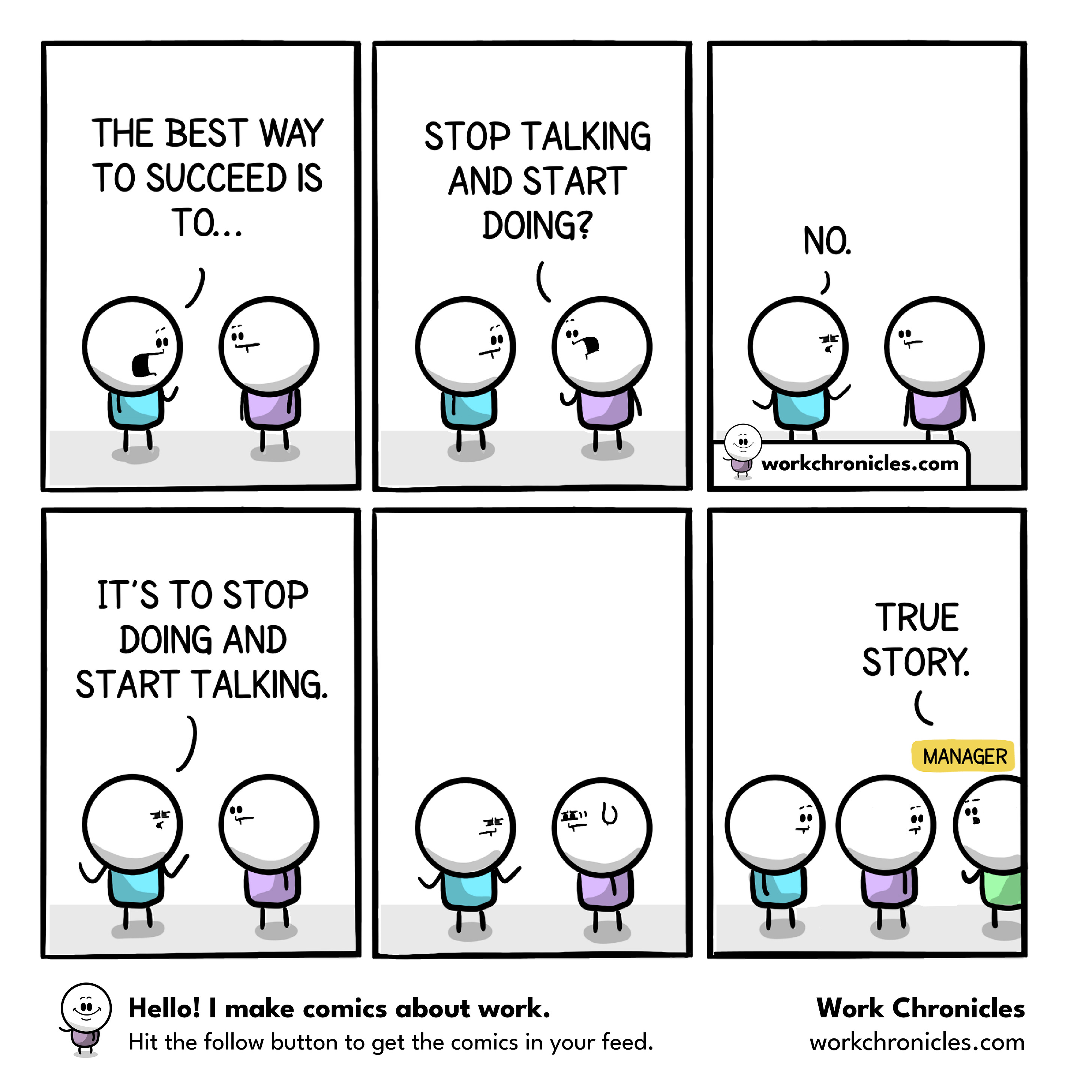Visibility
I don’t often give career advice. Or rather, while I often talk about what good engineers and developers do, the importance of adding value, and the importance of managing your own career, I rarely talk about specific things you need to do to get a promotion. I’m of the opinion that if you grow and improve yourself, add value, and create and take advantage of opportunities along the way, your work will be recognized and valued.
That said, knowing how to manage your career is advice on how to get promoted. The difference though, and it’s an important one, is the motivation. Managing your career in a way that lets you learn and grow and expand your scope of influence means doing things that will help to get you promoted. When you do those things to learn and grow, they satisfy internal needs. The satisfy the need for Autonomy, Mastery, and Purpose. t’s good for you. It’s likely good got your team. It’s likely good for your company.
On the other hand, when you do things with the goal of getting promoted, you might learn and grow, but those are collateral benefits. Checking boxes on a level rubric can get you promoted. Unfortunately, when your focus is on checking those boxes, you end up not helping yourself, not helping your team, and not helping the company you’re working for reach its goals. Worst case you end up with what Charity Majors described as roving bands of skilled, restless engineers competing for vanity projects. And when you get the promotion, you’re likely to find that while it’s satisfying for a little while, it didn’t really satisfy that internal need, and instead of enjoying things, you just keep struggling for the next promotion.
The thing is, regardless of your motivation, you’ll do many of the same things. One of those things is ensuring you have visibility. Which brings me to this image, from workchronicles
I’ve mentioned workchronicles and shared one of their comics before. Like many of those comics, it’s more than a bit cynical, but there’s a kernel of truth hiding in there. You need to get past the tyranny of or. You do need to talk about what you’re doing and what you’ve done, but NOT at the expense of doing the work. Advancing your career requires a bunch of things. Of course, you need the ability. You need to demonstrate that you can do the work, but ability alone isn’t enough.
After all, your coworkers, your peers, have roughly the same ability as you do. They might have deeper knowledge of something specific, or a broader knowledge base, but they’re your peers. Assuming everything else is working the way it should (yes, I know what happens when you assume) if they’re your peers, your abilities are roughly equal.
Since ability isn’t enough, what’s the next thing? The next thing is that others need to know that you have the ability. That’s where visibility comes in. To manage your career, to set yourself up for growth, to be in a position where you can see opportunities, you need to make sure that your ability is visible. Or, as I said last week, you need to radiate information. The key is to make your ability (and the value you’ve added by using that ability) visible to people without bragging or forcing it down other’s throats.
You do that by informing people of what you’ve done, and how it helps them and makes their lives easier. You do it by asking relevant questions. Not to show how smart or observant you are, but to help others make the right decisions and to make sure they haven’t overlooked any potential problems. You do it by helping others and sharing your ability when it’s needed, and you can help. You do it by documenting and sharing your learnings. You do it by not being indispensable in an area, but by helping others learn that area themselves. You do it by doing the work that’s important and valuable and move things forward for everyone, because it’s important and valuable to everyone, not because it’s flashy, or “level appropriate”.
If you do those things your visibility will go up. Your scope of influence will go up. You’ll see bigger pictures and see more opportunities. Your autonomy, mastery, and purpose will go up. You’ll be more satisfied. And, as a side effect, you might get a promotion.

